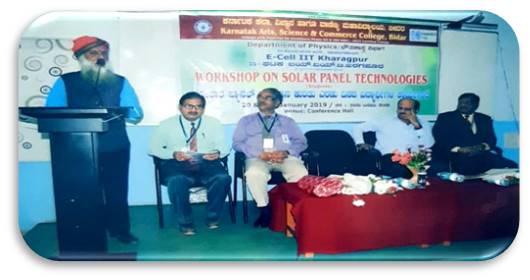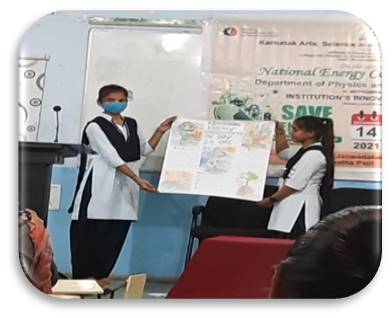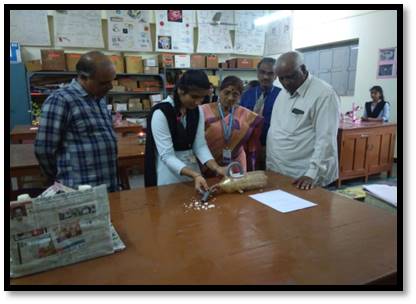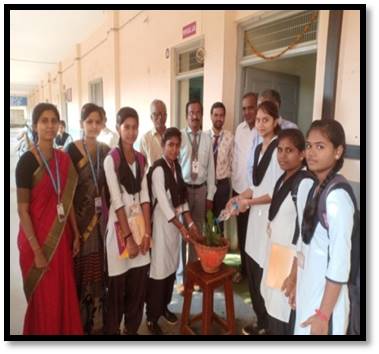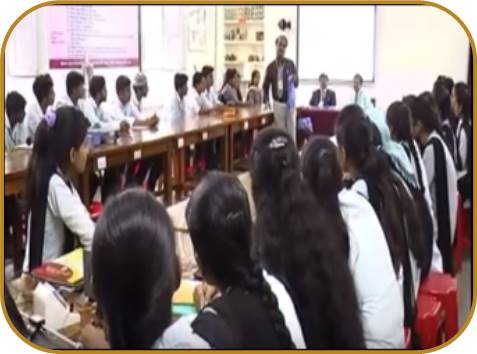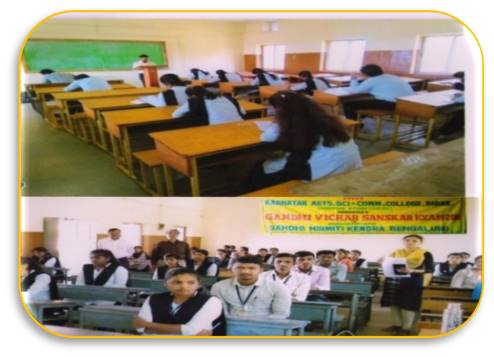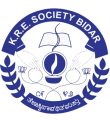Karnataka Rastriya Education Society
- principal@kascc.in.net
- +919343834635
Establishment of the Department: 1982
ABOUT THE DEPARTMENT
Then President of KRE Society, Shri R V Bidap ji immensely felt to add a Science wing to the existing Karnatak Arts & Commerce College Bidar. Accordingly, steps were initiated and under the able guidance of the Secretary KRES, Shri Channbasappa Halhalli ji,
The Department of Physics was established in the year 1982 in a small carpet area of 250 square feet with only seven students & one single teaching faculty.
With constant inspiration from the management of KRE Society and hard efforts put forth by faculty, the department went On growing and progressed day by day in multi-dimensions. Today with 370 students and 10 full-time teaching faculties (one under grant-in- aid scheme & 9 management employees), it is one of the prominent departments in the college. The department has a well-equipped laboratory with notable instruments like a GM counter, Laser Opto-electronic kit, Michelson Interferometer, Astronomical Telescope, Wind energy training system, Solar PV training system, etc., and is housed in a carpet area of 2,500 square feet.
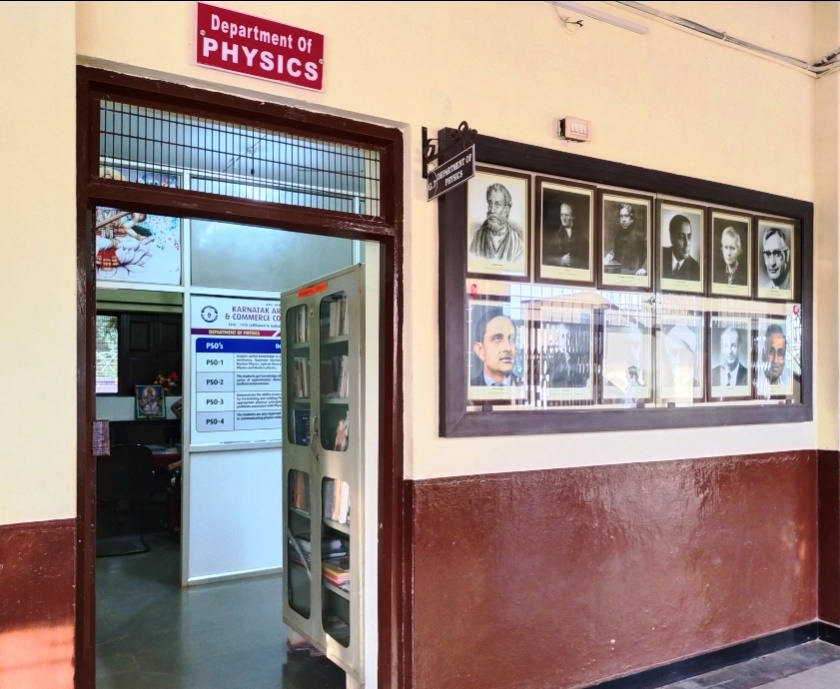
Keeping in mind the main goal of the department, i.e. to stimulate the spirit of curiosity, inquiry, innovation, and creativity among the learners and to stimulate learner’s desire to apply their knowledge to practical life the faculty is striving its best under the inspiring guidance of present President KRE Society Sri. Basawraj Jabshetty.
Keeping in mind the overall development of the student, they are exposed to various co-curricular & extracurricular activities like Quiz competitions, webinars, seminars, divisional level & state level various competitions, etc.
OBJECTIVES:
- To create human resources with a strong foundation in Physics which can be applied to wide areas in Science and Technology.
- To motivate students towards research in Physics as well as in interdisciplinary areas.
- To carry out high-quality scientific research in wide areas of Physics.
- To carry out research through collaboration with researchers from other reputed academic institutions in India.
- To bring externally sponsored funds to strengthen laboratory facilities and support doctoral students.
- To organize outreach activities to promote scientific culture
INTERDISCIPLINARY COURSES
- As per CBCS: PCM, PME, PMCs.
- As per NEP: PM, PC, PCs., PE & Open Elective
- Diploma /Certificate Course in Renewable Energy (2019-2022)
- Skill Development Diploma Course in Renewable Energy (2023)
PROGRAMME LEARNING OUTCOMES
PO1.: Disciplinary Knowledge: Capable of demonstrating comprehensive knowledge and understanding of one or more disciplines that form a part of an undergraduate program of study
PO2. Communication Skills: Ability to express thoughts and ideas effectively in writing and orally; Communicate with others using appropriate media; confidently share one’s views and express herself/himself; demonstrate the ability to listen carefully, read and write analytically, and present complex information clearly and concisely to different groups.
PO3. Critical Thinking: Capability to apply analytic thought to a body of knowledge; analyze and evaluate evidence, arguments, claims, and beliefs based on empirical evidence; identify relevant assumptions or implications; formulate coherent arguments; critically evaluate practices, policies, and theories by following a scientific approach to knowledge development.
PO4. Problem-Solving: Capacity to extrapolate from what one has learned and apply competencies to solve different kinds of non-familiar problems, rather than replicate curriculum content knowledge; and apply one’s learning to real-life situations.
PO5. Analytical reasoning: Ability to evaluate the reliability and relevance of evidence; identify logical flaws and holes in the arguments of others; analyze and synthesize data from a variety of sources; draw valid conclusions and support them with evidence and examples, and address opposing viewpoints.
PO6. Cooperation/Teamwork: Ability to work effectively and respectfully with diverse teams; facilitate cooperative or coordinated effort on the part of a group, and act together as a group or a team in the interests of a common cause and work efficiently as a member of a team.
PO7. Scientific Reasoning: Ability to analyze, interpret, and draw conclusions from quantitative/qualitative data; and critically evaluate ideas, evidence, and experiences from an open-minded and reasoned perspective
PO8. Information/digital Literacy: Capability to use ICT in a variety of learning situations, demonstrate ability to access, evaluate, and use a variety of relevant information sources; and use appropriate software for analysis of data.
PO9. Moral and Ethical awareness/reasoning: Ability to embrace moral/ethical values in conducting one’s life, formulate a position/argument about an ethical issue from multiple perspectives, and use ethical practices in all work. Capable of demonstrating the ability to identify ethical issues related to one’s work, avoid unethical behavior such as fabrication, falsification, or misrepresentation of data or committing plagiarism, not adhering to intellectual property rights; appreciating environmental and sustainability issues; and adopting objective, unbiased and truthful actions in all aspects of work.
PO10. Leadership readiness/qualities: Capability for mapping out the tasks of a team or an organization and setting direction, formulating an inspiring vision, building a team that can help achieve the vision, motivating and inspiring team members to engage with that vision, and using management skills to guide people to the right destination, smoothly and efficiently.
PO11. Lifelong Learning: Ability to acquire knowledge and skills, including learning how to learn, “that are necessary for participating in learning activities throughout life, through self-paced and self-directed learning aimed at personal development, meeting economic, social, and cultural objectives, and adapting to changing trades.
FACULTY MEMBERS
SL.NO. | NAME OF THE FACULTY | QUALIFICATION | DESIGNATION | EXPERIENCE |
1 | Sri. A. D Shetkar | M.Sc.,M.Phil., PGDCA | Associate Professor &Head | 33 |
2 | Sri. Ashok Bajolgekar | M.Sc. | Assistant Professor | 16 |
3 | Smt. Shweta Patil | M Sc., B.Ed. | Assistant Professor | 07 |
4 | Miss. Shruti Swami | M Sc.,B.Ed. | Assistant Professor | 05 |
5 | Smt. Pallavi J Mudda | M Sc.,B.Ed. | Assistant Professor | 01 |
6 | Smt. Archana Patil | M Sc.,B.Ed. | Assistant Professor | 01 |
7 | Sri. Manjunath H | M Sc. | Assistant Professor | 01 |
8 | Dr. Malge Amarkumar | M.Sc. Ph.D | Assistant Professor | 01 |
9 | Dr. Kamalakar K Dawlekar | M.Sc. M.Phil., Ph.D | Assistant Professor | 01 |
10 | Miss. Deepika R Gabadi | M.Sc. | Assistant Professor | 01 |
11 | Sri. S. P. Janawadkar | M.Sc. | Associate Professor (Retired on 31st March 2023) | 37 |
12 | Sri. S. L. Kulkarni | M.Sc. | Associate Professor (Retired on 30th June 2021) | 37 |
NON-TEACHING STAFF | ||||
1 | Mr. Veeresh. B | PUC | Attendant | 01 |
2 | Smt. Shivaleela | PUC | Attendant | 01 |
TEACHING LEARNING METHODS
1) Use of ICT
2) Student Seminars/PPTs/Group Discussions
3) Expert Talks
4) Use of NPTEL/NGPE Resources
5) Assignments / Field Visit / Mini Projects
6) Add-on / Certificate Course
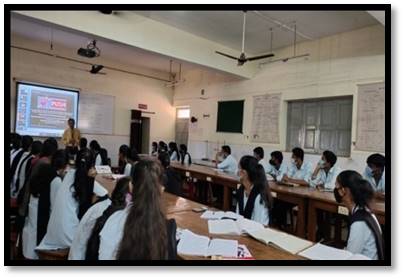
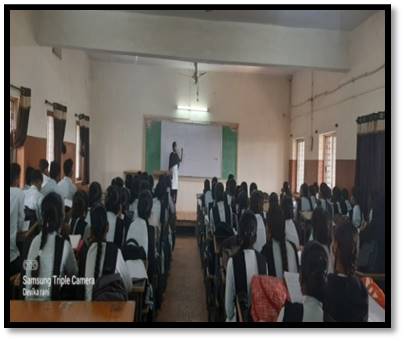

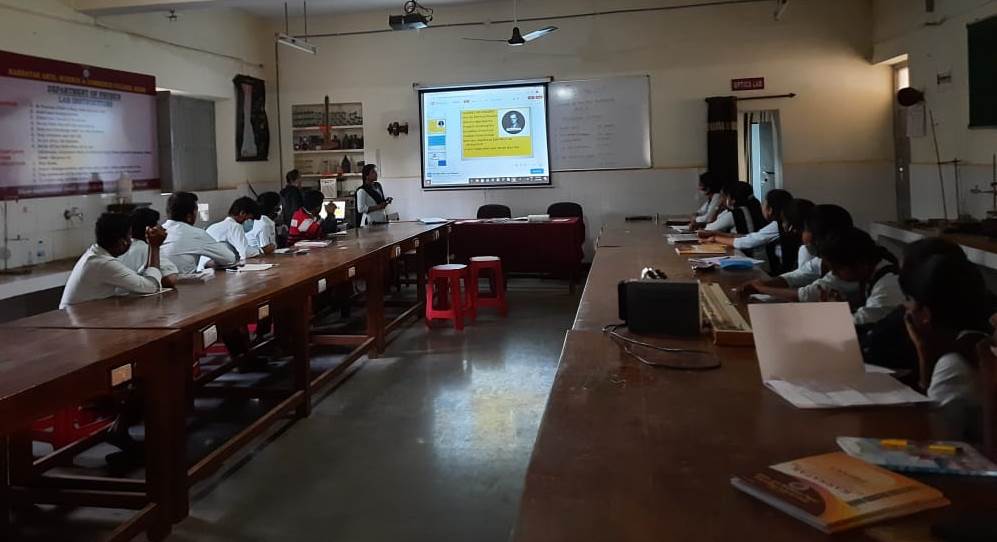
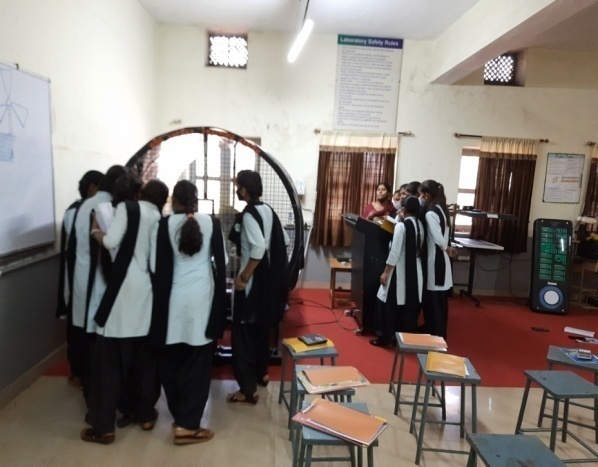

RESULTS & RANKS
ACADEMIC YEAR | TOTAL APPEARED | DISTINCTION | FIRST CLASS | PASS CLASS | TOTAL PASS | PASS % |
2017-18 | 108 | 25 | 45 | 11 | 81 | 75.00% |
2018-19 | 117 | 29 | 25 | 35 | 89 | 76.06% |
2019-20 | 80 | 42 | 16 | 16 | 74 | 92.50% |
2020-21 | 117 | 61 | 20 | 22 | 103 | 88.03% |
2021-22 | 121 | 65 | 27 | 20 | 112 | 92.56% |
TOPPERS OF THE DEPARTMENT
ACADEMIC YEAR | Name of the Student | Reg. No | Obtained Marks | Percentage |
2017-18 | Soundarya Baswaraj | 1642965 | 262/300 | 87.33% |
2018-19 | Nikita Rajesh | 1746862 | 281/300 | 93.66% |
2019-20 | G. Ambika Vijaykumar | 1863025 | 283/300 | 94.33% |
2020-21 | Maheshwari Rajshekhar | 1947234 | 183/200 | 91.50% |
2021-22 | Mobushira Fatima | S2063084 | 141/150 | 94.00% |
ACHIEVEMENTS OF THE DEPARTMENT
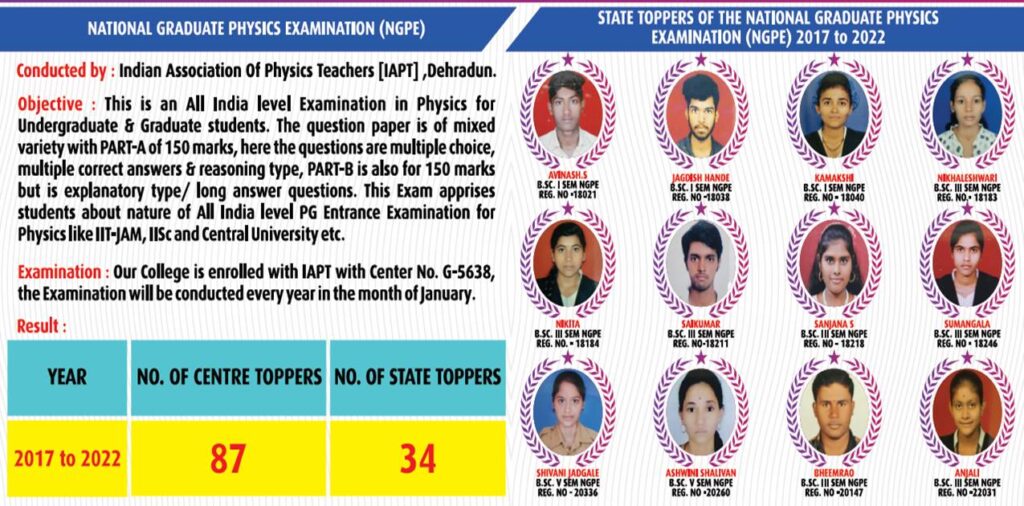
CO-CURRICULAR & EXTENSION ACTIVITIES
